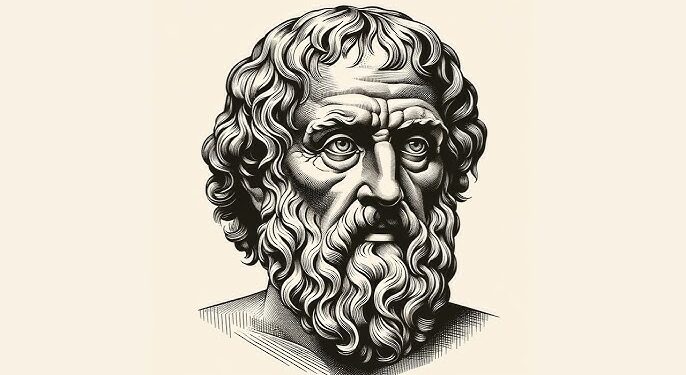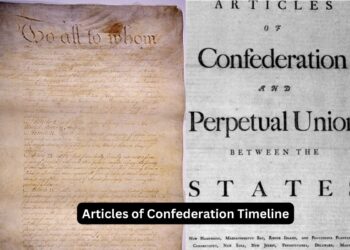Table of Contents
ToggleIntroduction to Plato’s “Ion”
Ion Summary And Thems BY Plato “Ion” is a short dialogue that features a conversation between Socrates and Ion, a rhapsode (an ancient Greek performer and reciter of epic poetry). In this dialogue, Ion boasts about his skill in interpreting Homer’s epic poems, especially the Iliad and the Odyssey. However, Socrates questions Ion’s claim of understanding and mastery over these texts, leading to a philosophical exploration of the nature of inspiration, knowledge, and the role of the poet and the interpreter.Ion Summary And Thems BY Plato
Ion Summary And Thems BY Plato The central topic of the dialogue is the question of whether poetic knowledge is the result of true understanding and reason or whether it is a form of divine inspiration. Socrates challenges Ion’s assertion that he is able to understand Homer’s works, suggesting instead that Ion’s ability to recite the poetry may be a product of divine influence, rather than reasoned knowledge. The dialogue raises important questions about the relationship between art and philosophy, inspiration and rationality, and the nature of true knowledge.Ion Summary And Thems BY Plato
Plot Summary of “Ion”
Ion Summary And Thems BY Plato The dialogue begins with Socrates meeting Ion, a rhapsode who is returning to Athens from a performance at Ephesus, where he had been reciting Homer’s works. Ion is ecstatic about his performance and praises the works of Homer, claiming that he has an exceptional understanding of Homer’s poetry. He states that he has a special ability to interpret Homer’s epics and deeply affects the audience with his recitations.Ion Summary And Thems BY Plato
Read More
Socrates, intrigued by Ion’s confidence, asks him how he is able to interpret Homer’s poetry so well. Ion claims that his ability comes from knowledge and an understanding of Homer’s meanings. However, Socrates begins to question Ion’s understanding of the subject. He challenges Ion on how it is possible for him to interpret Homer’s poetry so effectively without having specialized knowledge of the subjects Homer writes about, such as warfare, medicine, or governance. Socrates points out that while Ion can recite Homer’s verses with great skill, he does not necessarily possess expertise in these other fields, which would require specialized knowledge.Ion Summary And Thems BY Plato
Ion Summary And Thems BY Plato Ion responds by explaining that he does not need any special expertise, as he simply possesses a talent for understanding Homer’s poetic themes. At this point, Socrates shifts the discussion to the nature of inspiration. Socrates suggests that Ion’s ability to perform Homer’s work might be less about knowledge and more about the influence of a divine force. He proposes that Ion, like a prophet or a seer, might be receiving inspiration from the gods, allowing him to interpret the poetry without understanding it in a rational way.Ion Summary And Thems BY Plato
Socrates uses the metaphor of a magnetic stone, which has the power to attract iron rings, each of which in turn attracts another. Socrates likens the rhapsode to the iron rings that are drawn to the stone, with the stone representing Homer and the divine inspiration. According to Socrates, Homer’s poetry itself is inspired by divine influence, and Ion, like a mere conduit, passes on this inspiration to the audience. Socrates argues that Ion’s talent as a rhapsode is not rooted in true knowledge but is instead the result of a kind of divine madness or inspiration, a state that is beyond rational control.Ion Summary And Thems BY Plato

Socrates presses Ion further, asking if his understanding of Homer’s work is the same when reciting different parts of the poem. Ion admits that he is much better at reciting passages about warfare or battles, but he struggles to understand other aspects, such as the medical or political themes in Homer. Socrates seizes upon this inconsistency to argue that Ion’s interpretation is not based on any systematic knowledge but rather on a kind of possession or inspiration that leads him to speak eloquently in some areas and struggle in others. Socrates concludes that Ion’s art is not one of true knowledge or expertise but of divine inspiration, with the poet (Homer) serving as the origin of the divine inspiration that flows through the rhapsode.
Read More
The dialogue ends with Socrates implying that Ion, like other poets and rhapsodes, should be regarded not as a wise person, but as someone who is inspired by the gods, serving as a channel for the divine message. Socrates emphasizes the need for true knowledge and rational understanding in philosophical inquiry, suggesting that poetry, while inspiring, does not provide the kind of true knowledge that philosophy seeks.Ion Summary And Thems BY Plato
Themes of Plato’s “Ion”
- The Nature of Inspiration and Knowledge
The central theme of “Ion” is the nature of inspiration versus true knowledge. Socrates questions whether the rhapsode’s talent is based on intellectual understanding or whether it is a form of divine madness. He argues that Ion’s recitation of Homer is not due to rational knowledge or skill but rather to a kind of inspiration that comes from the gods. In the dialogue, Plato explores the distinction between true knowledge, which comes from rational understanding, and the kind of knowledge that poets and rhapsodes possess, which is more akin to inspiration or divine possession.
Socrates suggests that poets and rhapsodes do not possess real knowledge of the topics they address in their work. Instead, their abilities are the result of a kind of madness—a divine gift that allows them to perform their roles effectively but without the understanding that philosophers or experts have in other fields. This distinction between rational knowledge and inspired performance is a key idea in Plato’s philosophy.Ion Summary And Thems BY Plato
- The Role of the Poet and the Rhapsode
Plato’s “Ion” also delves into the role of the poet and the rhapsode in society. In the dialogue, Ion is shown to have a great affinity for Homer’s work, but Socrates points out that he lacks the specialized knowledge required to understand or explain Homer’s poetry in a systematic or intellectual manner. The poet (Homer) is often portrayed as a medium through which divine inspiration flows, but this raises important questions about the authenticity of the poet’s knowledge and the value of the poet’s role in relation to true philosophers and experts.Ion Summary And Thems BY Plato
Socrates suggests that poets and rhapsodes are not true philosophers and are not able to provide real understanding of the world. While they can move and inspire people through their performances, their role in society is one of entertainment and emotion, not rational inquiry or knowledge. In this way, Plato’s dialogue raises concerns about the potential dangers of relying too heavily on the authority of poets and artists without questioning the underlying knowledge or wisdom they are believed to possess.
- Divine Inspiration vs. Rational Thought
A recurring theme in “Ion” is the tension between divine inspiration and rational thought. Socrates suggests that the best poets and rhapsodes are those who are inspired by the gods, but he also points out that such inspiration does not equate to true philosophical knowledge. In contrast to the philosopher, who seeks knowledge through reason and rational understanding, the poet is portrayed as a figure who is touched by divine forces but does not understand the true nature of the world.Ion Summary And Thems BY Plato
This theme is central to many of Plato’s works, as he often contrasts the world of the senses and emotions with the world of reason and intellect. In Ion, the philosopher is shown to have a higher form of knowledge because they are able to reason and think critically about the world, while the poet is seen as someone who may convey powerful truths but lacks true comprehension of the universal principles that govern the world.Ion Summary And Thems BY Plato
- The Role of Art in Society
“Ion” also touches on the role of art in society. Plato often criticized the influence of art and poetry on the emotional and irrational aspects of human nature. While poetry and art can be powerful tools for expressing emotions and inspiring people, they can also lead people away from true philosophical inquiry and rational thinking. Socrates, in this dialogue, suggests that the rhapsode (and the poet) is an intermediary who delivers a message but does not necessarily understand the deeper meaning or truth behind that message. This idea raises concerns about the impact of art on society, especially when people come to believe that art and poetry contain the same depth of knowledge as philosophy or science.Ion Summary And Thems BY Plato
- Philosophical Knowledge and Truth
In the conclusion of the dialogue, Socrates emphasizes the importance of true knowledge—a knowledge based on rational understanding and philosophical inquiry. For Socrates, the philosopher’s ability to seek truth through reason stands in contrast to the poet’s reliance on inspiration. Philosophical knowledge, according to Socrates, is the only path to understanding the truth of the world, while artistic representations, no matter how beautiful or moving, remain inferior to the philosopher’s quest for deeper understanding.Ion Summary And Thems BY Plato

Conclusion
Ion Summary And Thems BY Plato In Plato’s “Ion”, the philosopher presents a critique of the role of the poet and rhapsode in society, arguing that their abilities are not based on knowledge or reason but on divine inspiration. Through Socrates’ questioning of Ion, Plato explores the distinction between rational knowledge and artistic inspiration, challenging the notion that poets and artists possess true understanding of the world. The dialogue offers a powerful exploration of the relationship between art and philosophy, highlighting the limits of artistic expression in providing genuine knowledge of the world.Ion Summary And Thems BY Plato
Read More
(FAQ)
1. What is the central argument in Plato’s “Ion”?
The central argument in Ion is that the skill of the rhapsode, Ion, in interpreting Homer’s poetry is not based on knowledge or rational understanding, but rather on divine inspiration. Socrates argues that the poet and rhapsode are not true experts but are conduits of divine influence.
2. What is the significance of divine inspiration in the dialogue?
Divine inspiration in Ion is presented as the source of the poet’s and rhapsode’s abilities. Socrates suggests that, rather than relying on intellectual knowledge, the poet is motivated by a kind of madness or divine possession that enables them to produce powerful art.
3. How does Socrates view the role of the poet in society?
Socrates sees the poet as a figure who may inspire and entertain but lacks true knowledge. He believes that poets, including Homer, are not philosophers and do not provide real insight into the nature of reality. Instead, they are mediums through which divine forces express themselves.Ion Summary And Thems BY Plato
4. What is the relationship between poetry and philosophy in Ion?
In Ion, Socrates suggests that while poetry can be emotionally powerful, it is inferior to philosophy. Philosophy seeks knowledge and truth through reason, while poetry is based on inspiration and emotional expression. Socrates stresses the importance of rational understanding over emotional or artistic inspiration.
5. What does Plato’s Ion say about knowledge and expertise?
Plato’s Ion explores the idea that true knowledge requires rational understanding and expertise, not mere inspiration. Ion, as a rhapsode, lacks genuine expertise in the subjects Homer writes about, and Socrates questions whether the ability to perform poetry is truly a form of knowledge or simply a form of divine madness.
















